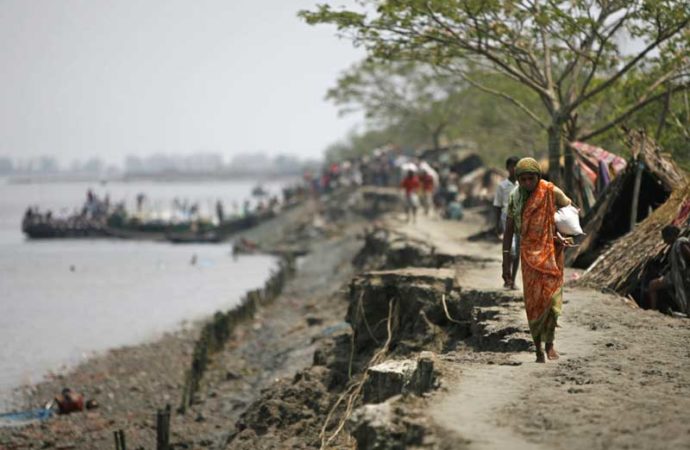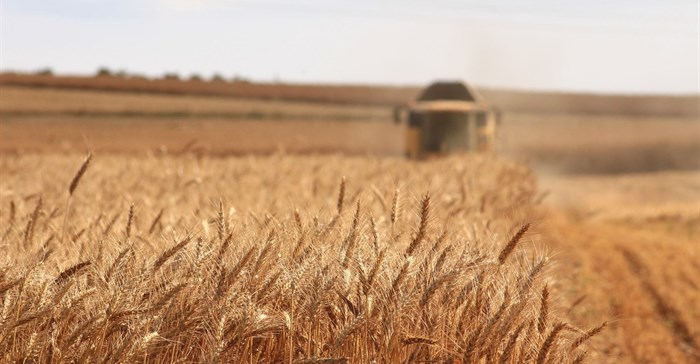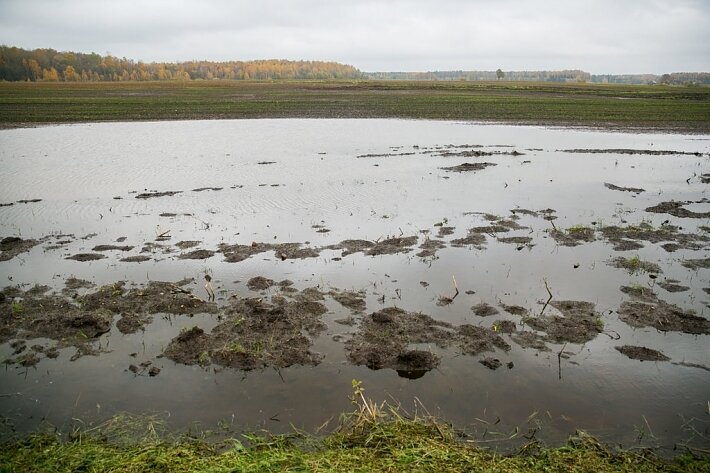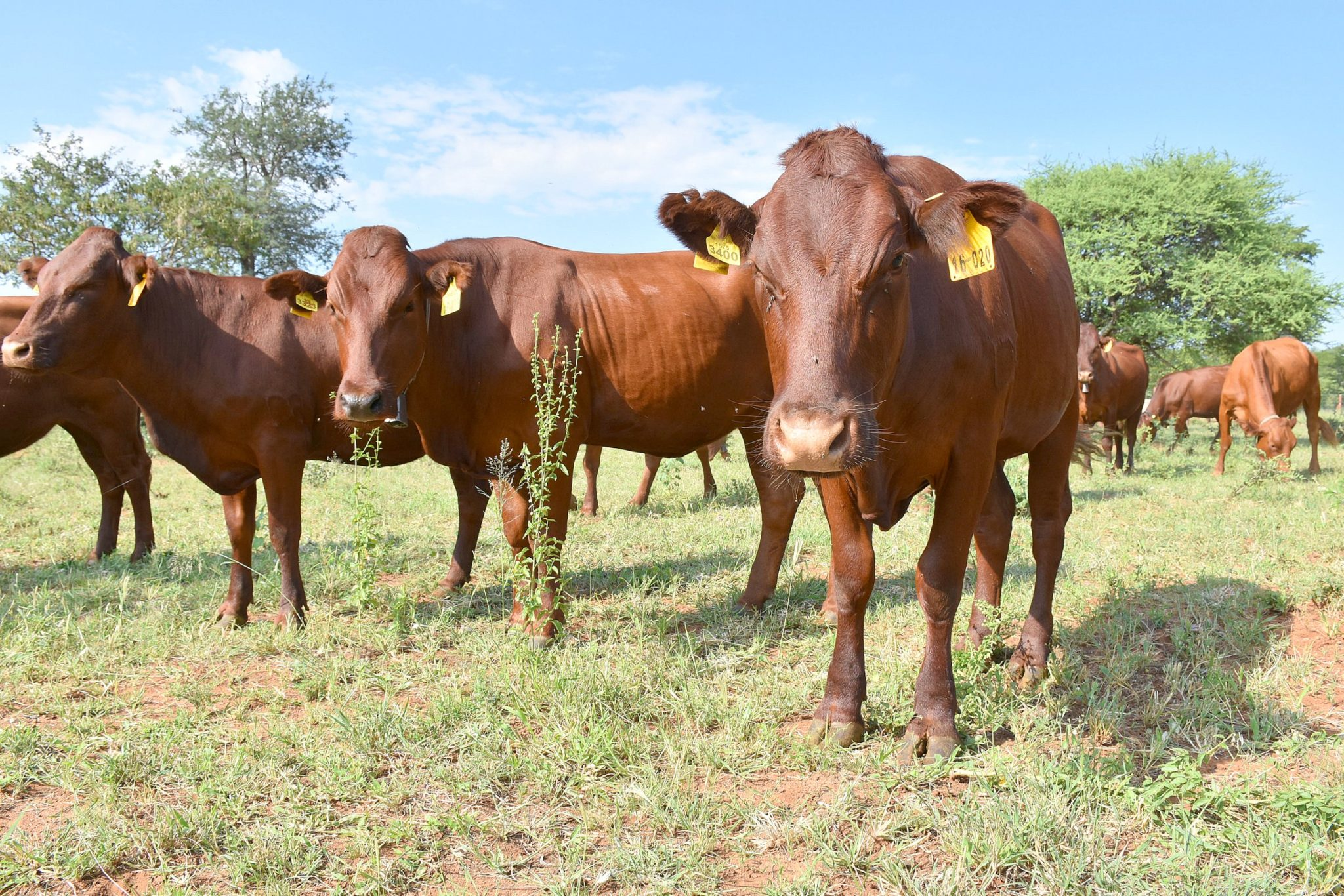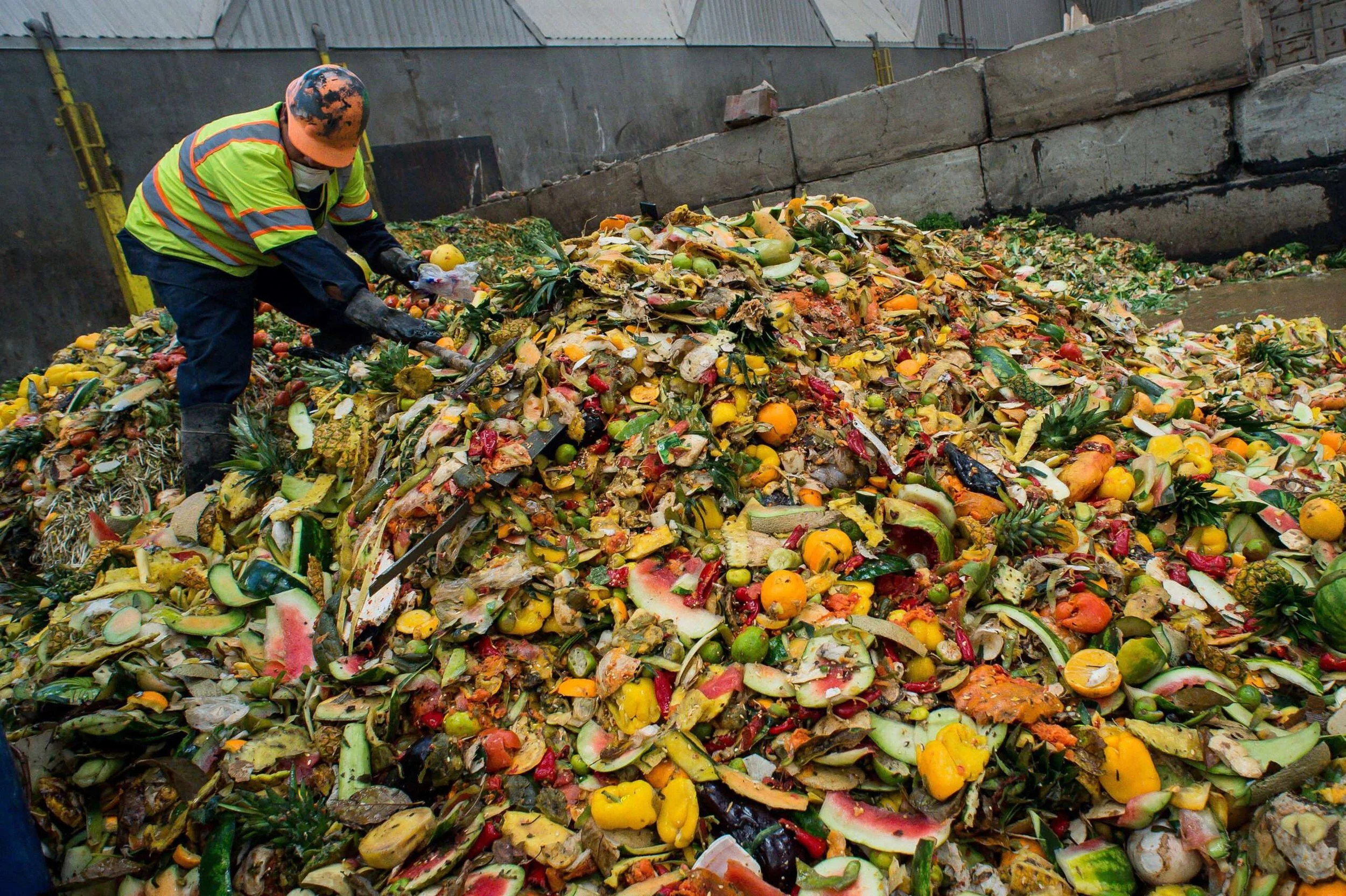Climate change is a problem for the whole world, but Bangladesh is particularly vulnerable
Climate change is the most daunting environmental issue of our time. It has instigated a wide range of challenges for countries, and many of us are already confronting the adverse impacts of it.
The impacts are multi-dimensional and extensive, ranging from ecology to economy, and other decisive sectors as well.
Bangladesh is a small country. It has a long history of being a neutral and peace-loving country, but now the name of this land is frequently uttered in the world forum due to its enormous vulnerability to climate change impacts.
Bangladesh is one of the poorest countries in the world, where remittances and the garment industry are the premier contributing sources of its economy. On the other hand, Bangladesh is also one of the largest deltas of the world, a majority of which is hardly above sea level.
So, due to both economic and geographic characteristics, Bangladesh is accounted to be the most vulnerable country to climate change in the world.
From the inception of its journey in 1971, it has been enduring extreme climatic events like cyclones, tidal bores, floods, storms, etc. Over the last few years, it has undergone frequent and intense natural disasters due to climate change.
The memories of devastating Sidr and Aila in the recent past are not to be blurred anytime soon, which swept over Bangladesh in 2007 and 2009 respectively, claiming thousands of lives, and bringing uncountable economic losses.
The country is densely populated, contributing to 2.19% of the world’s population, but in terms of greenhouse gases emissions, it contributes a tiny proportion of 0.14%. Despite negligible contribution of greenhouse gases, Bangladesh is facing devastating impacts of climate change.
Many environmental experts are projecting more dangerous climate events in the upcoming days. It is predicted that if the sea level rises by one metre as glaciers melt gradually, 17% of Bangladesh will be inundated permanently, and 19 districts will be affected directly.
Other impacts like temperature increase, droughts, etc are evidently present in Bangladesh now, affecting the daily lives of people. In addition, increases in cyclones, flash floods, and floods are prevalent as we are extremely prone to such devastation, with 80% of the total land area being hardly above sea level.
We used to expect floods once within 10 years, but now it occurs once in every two years. Salinity intrusion has become a severe problem in the southern part of Bangladesh. Due to frequent occurrence of tidal bores, cyclones, etc, saline water intrudes agricultural land easily and as a result depletes its productivity.
If we attempt to estimate the sectoral impacts of climate change, then we can note that losses are uncountable.
We are mainly an agricultural based economy, and this sector provides about 50% of total employment. Due to extreme temperature, drought, heavy fall, and salinity intrusion, crop-yielding is decreasing rapidly. People are losing their sources of livelihood and employment. Food security may become another issue in the coming days for Bangladesh, as rice production in the southern part of the country is decreasing due to salinity intrusion.
On a positive note, Bangladesh is undoubtedly privileged with a wide diversity of ecosystem, including the mangrove forests and the longest sea beach, and has long coastal areas in its southern part, covering 19 districts.
The Sundarbans, a world heritage site, is also being affected badly by climate change-induced natural disasters. Many species of this forest are on the verge of extinction due to climate change.
Even urban areas like Dhaka and Chittagong are being affected directly by extreme temperature and water lodging. It is worth mentioning that 40% of the urban population in Bangladesh lives in slum areas. Moreover, more slums are being formed by refugees, and existing slums have become over-crowded. All these slums are creating new issues like air pollution and accommodation problems.
For a research project titled “Socio-economic Impacts of River Erosion: A case study on Faridpur district,” I had the opportunity to work on this issue particularly. During my field work, I observed how devastating impacts of river erosion can be.
People are being deprived of their basic needs such as education, health, and other modern facilities as they have to move frequently from one place to another.
Recently, I sought consultation of Dr Niaz Ahmed Khan, a professor in the department of development studies in Dhaka University, regarding the impacts of climate change in Bangladesh. Dr Khan was stressing on social impacts of climate change.
He said: “The economic impacts of climate change are undoubtedly foreseeable by experts and analysts, but the social impacts need to be scrutinised as well. Most importantly, livelihoods of vulnerable groups inhabiting coastal and char lands will be seriously affected, which will result in explicit and implicit impact.
The first being a loss of cultivable land and forest areas, while the latter is likely to manifest itself in the form of social inequality, exclusion, leading towards social instability. Major SDG development goals like poverty alleviation, environmental sustainability, and bio-diversity preservation will therefore be hampered in the long run.”
It’s high time to preserve our planet for our next generation. We should not consider climate change as an isolated problem for any specific nation, rather let’s consider it as our common problem. We need to be responsible for mitigating the impact of climate change successfully and efficiently.
Source - http://www.dhakatribune.com


